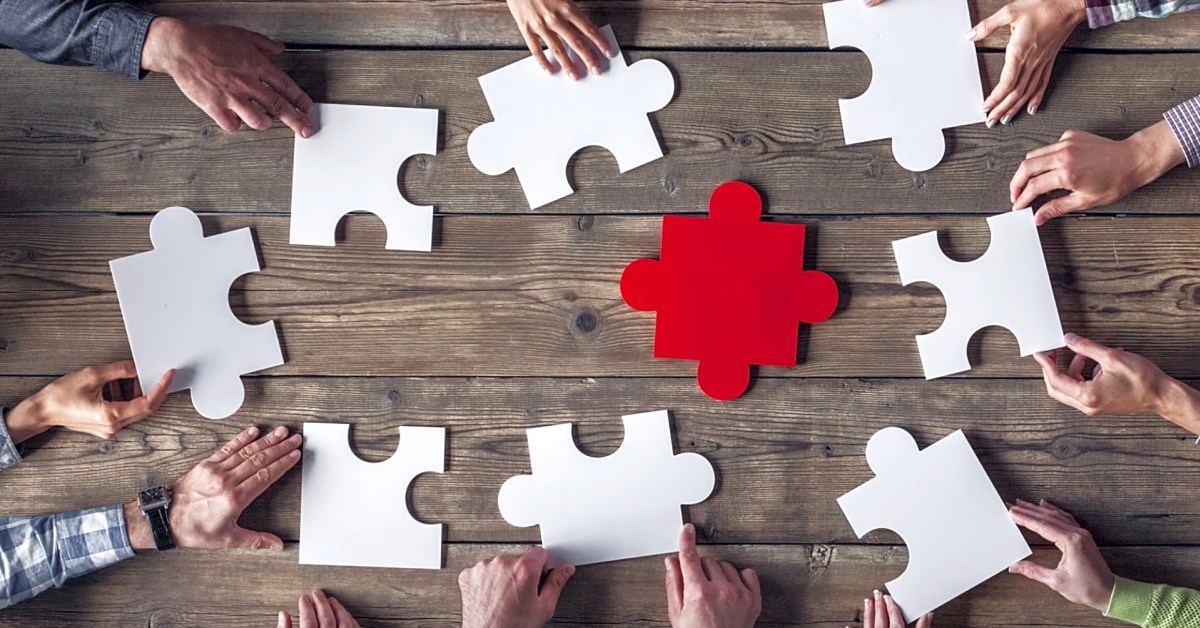Effective communication and collaboration are essential for any organization to thrive and succeed in today’s fast-paced and constantly evolving business landscape. In order to stay competitive and meet the ever-changing demands of customers, companies must be able to efficiently solve problems and find effective solutions. This is where effective communication and collaboration play a crucial role. By fostering open communication and promoting collaboration among team members, organizations can improve their efficiency and overall performance. In this article, we will delve into the importance of communication and collaboration for solving problems and achieving successful outcomes. We will also explore various methods and strategies that can help organizations foster a collaborative problem-solving culture. So, if you want to enhance your organization’s efficiency and drive better results, keep reading to discover the power of communication and collaboration for effective solutions.
To start, it’s important to understand the main search intent behind this topic. People searching for information on operational leadership are likely looking for ways to improve their management skills and build a stronger team. They may also be seeking ways to increase organizational efficiency and performance through problem-solving and decision-making. As a result, this article will focus on these key areas, providing tips and techniques for effective communication and collaboration that will lead to better problem-solving and decision-making within your organization.
In today’s fast-paced business world, effective communication and collaboration are essential for success. As a leader, it is your responsibility to ensure that your team works together cohesively and efficiently to find solutions to problems and make important decisions. This article will provide you with strategies and techniques to improve your operational leadership skills and help you create a more productive and cohesive team.
Improving organizational efficiency and performance requires strong communication and collaboration among team members. By fostering an environment of open communication and encouraging collaboration, you can promote a more efficient problem-solving process. This means encouraging team members to share their ideas and perspectives, actively listening to one another, and working together towards a common goal.
Effective communication also plays a crucial role in decision-making. By ensuring that all team members are on the same page and have a clear understanding of the problem at hand, you can make more informed decisions that benefit the organization as a whole. This includes clearly communicating expectations, delegating tasks effectively, and providing regular updates and feedback.
In addition to promoting better problem-solving and decision-making, effective communication and collaboration can also lead to a stronger and more cohesive team. By fostering open communication and encouraging collaboration, team members can build trust, respect, and understanding among one another. This can lead to improved teamwork, increased productivity, and a more positive work environment.
In conclusion, communication and collaboration are essential components of effective problem-solving and decision-making in any organization. By implementing strategies and techniques to improve these areas, you can enhance your operational leadership skills and create a more efficient and cohesive team. Remember to foster open communication, encourage collaboration, and actively listen to your team members in order to achieve better results and drive success for your organization.
Effective Communication Strategies
Communication is the key to successful collaboration. It is the foundation for building trust, understanding, and respect among team members. Without effective communication, misunderstandings and conflicts can arise, hindering the progress and efficiency of problem-solving efforts.
To improve communication within your team, consider implementing the following strategies:
- Active Listening: Encourage your team members to actively listen to each other, without interrupting or judging. This will help ensure that all viewpoints are heard and understood.
- Clear and Concise Messaging: When communicating important information or instructions, make sure to be clear and concise. Avoid using jargon or technical terms that may not be familiar to everyone.
- Regular Check-Ins: Schedule regular check-ins with your team to discuss progress, address any concerns, and ensure everyone is on the same page.
By using these strategies, you can create a more open and effective communication environment within your team, leading to better collaboration and problem-solving.
Building a Cohesive Team
In order to have effective communication and collaboration within a team, it is important to first establish a strong team dynamic. A cohesive team is one that works together towards a common goal, where each member feels valued and supported by their peers. Here are some strategies for creating a strong team dynamic:
- Set clear goals and expectations: Ensure that every team member understands the overall goal and their individual responsibilities. This will help keep everyone focused and aligned.
- Encourage open communication: Create an environment where team members feel comfortable sharing their thoughts and ideas. This will promote collaboration and problem-solving.
- Foster trust and respect: Team members should feel that they can rely on each other and trust in each other’s abilities. Respect should also be shown towards different perspectives and opinions.
- Promote diversity: Embrace diversity within your team, as it brings different perspectives and ideas to the table. This can lead to more effective problem-solving and decision-making.
By implementing these strategies, you can create a cohesive team dynamic that will enhance communication and collaboration within your team, ultimately leading to more effective solutions.
Problem-Solving Techniques
In today’s fast-paced business world, effective communication and collaboration are essential for success. As a leader, it is your responsibility to ensure that your team works together cohesively and efficiently to find solutions to problems and make important decisions. One of the key skills for effective problem-solving is the ability to identify and define the problem. This involves taking a step back and analyzing the situation objectively, gathering all necessary information, and breaking down the problem into smaller, more manageable components.
Once the problem has been clearly defined, the next step is to brainstorm possible solutions. Encourage open communication and collaboration within your team, as this can lead to innovative ideas and perspectives. It’s important to consider all options and evaluate their potential effectiveness before making a decision.
Effective problem-solving also involves taking action and implementing the chosen solution. This may require delegating tasks to team members, setting timelines and goals, and monitoring progress. It’s important to have open communication throughout this process to ensure everyone is on the same page and any issues or roadblocks are addressed in a timely manner.
In conclusion, effective problem-solving requires strong communication and collaboration skills. By utilizing techniques such as defining the problem, brainstorming solutions, and taking action, you can improve your team’s ability to identify and solve problems efficiently. As a leader, it’s important to foster an environment of open communication and collaboration to promote effective problem-solving within your team.
Making Informed Decisions
When it comes to problem solving and decision making, effective communication and collaboration are key. As a leader, it is important to create an environment where your team feels comfortable sharing their ideas and opinions. This allows for a diversity of perspectives and can lead to more informed decisions. Here are some tips for making effective decisions in a team environment:
- Encourage open communication: Create a culture of open communication where team members feel comfortable expressing their thoughts and ideas. This not only promotes collaboration, but also helps in gathering all the necessary information for decision making.
- Listen actively: Active listening involves paying attention to what others are saying and trying to understand their perspective. This can help you gather insights and make more informed decisions.
- Consider all options: As a leader, it is important to consider all the available options before making a decision. Encourage your team to brainstorm and come up with different solutions. This will help in making a well-informed decision.
- Use data and facts: When making important decisions, it is crucial to use data and facts to support your choices. This not only helps in making an objective decision, but also avoids any biases or personal opinions.
By implementing the strategies and techniques outlined in this article, you can become a more effective leader and improve your team’s communication and collaboration skills. This will ultimately lead to improved organizational efficiency and performance, allowing your business to thrive.







